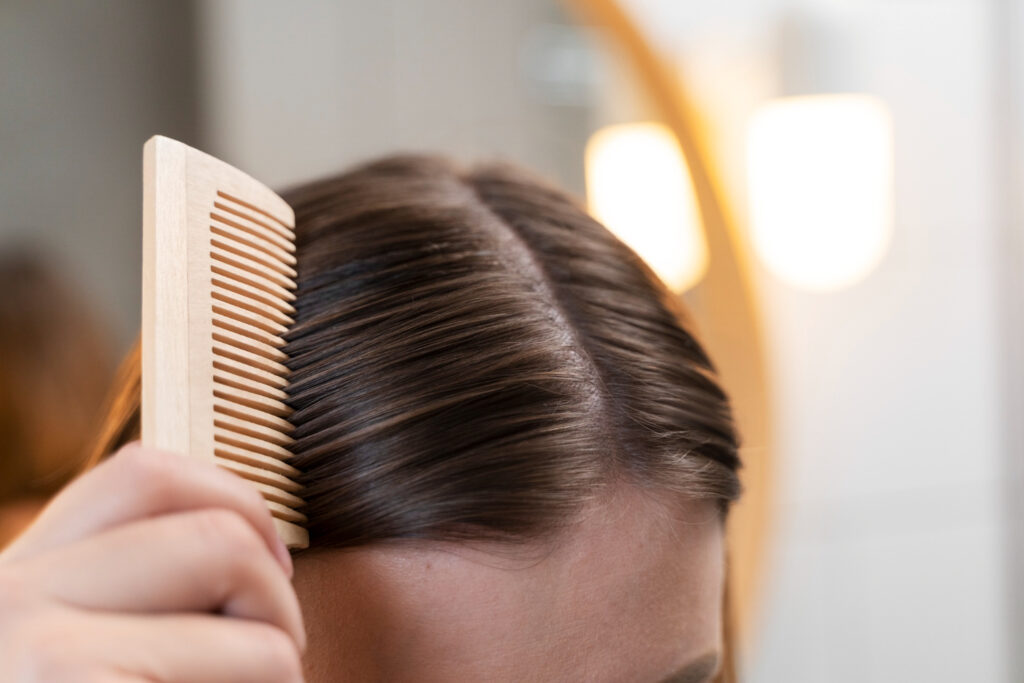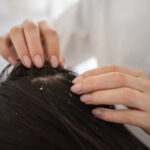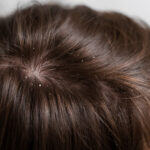
In this article
Dandruff is a widespread scalp condition that leads to itching and the accumulation of skin flakes. These small, white, or yellowish flakes are dead skin cells that shed more rapidly than usual due to excess oil production, known as sebum.
Causes of Dandruff
Several factors contribute to dandruff:
- Malassezia Overgrowth: This yeast-like fungus, part of the skin’s natural microbiome, thrives on scalp oil and can lead to increased skin cell turnover.
- Scalp Irritation: Hair care products containing certain chemicals can irritate the scalp, prompting an increase in skin cell production.
- Skin Conditions: Conditions such as seborrheic dermatitis, eczema, psoriasis, and scalp ringworm can also cause dandruff.
Types of Dandruff
Though dandruff appears similar across different types, the underlying causes vary:
- Dry Skin Dandruff: Often due to an excessively dry scalp, influenced by harsh weather, inadequate hydration, or hair products that strip natural oils.
- Oily Skin Dandruff: Results from overproduction of sebum, leading to a greasy scalp and larger, yellowish flakes.
- Fungus-related Dandruff: Triggered by Malassezia fungus, which causes an inflammatory response and increased flaking.
- Skin Condition-related Dandruff: Linked to conditions like psoriasis and eczema that cause excess skin flaking.
Symptoms of Dandruff
Dandruff primarily affects the scalp but can extend to other areas like eyebrows, ear creases, beard, groin, or armpits. Symptoms include:
- White, gray, or yellowish flakes on the scalp and hair
- Itchy scalp
- Red, irritated patches on the scalp
- Crusty or greasy patches on the scalp
Risk Factors
Certain factors can increase the likelihood of developing dandruff:
- Age: More common during adolescence and young adulthood due to hormonal changes increasing sebum production.
- Sex: More prevalent in males.
- Neurological Conditions: Conditions like Parkinson’s disease or traumatic brain injury are associated with a higher risk.
- Hair Care Practices: Using harsh products, infrequent washing, and excessive styling can worsen dandruff.
- Climate: Cold and dry weather can dry the scalp, while hot and humid conditions can promote fungal growth.
- Genetics: A family history of dandruff increases risk.
- Weakened Immune System: Individuals with compromised immune systems are more likely to develop dandruff.
- Lifestyle Factors: High stress levels, alcohol consumption, and a diet high in sugar can increase dandruff risk.
Diagnosis
Dandruff is usually diagnosed based on symptoms and a physical examination of the scalp. In rare cases, a skin biopsy may be conducted to rule out other conditions.
Treatment
There is no cure for dandruff, but treatments can minimize symptoms:
- Mild Dandruff: Daily washing with a gentle shampoo can help.
- Over-the-Counter Shampoos: Look for shampoos with active ingredients like zinc pyrithione, coal tar, selenium sulfide, and salicylic acid.
- Prescription Treatments: If OTC shampoos are ineffective, a healthcare provider may prescribe stronger medicated shampoos or topical treatments.
Prevention
Preventing dandruff involves maintaining a gentle hair care routine:
- Regular Cleansing: Maintain scalp hygiene with appropriate shampoos.
- Avoid Harsh Chemicals: Limit use of products with alcohol or harsh chemicals.
- Stress Management: Practice stress-reduction techniques like yoga and meditation.
Related Conditions
Some conditions related to dandruff include:
- Seborrheic Dermatitis: Similar to dandruff but can affect other areas like the face.
- Psoriasis: An autoimmune condition causing red patches with silvery scales.
- Contact Dermatitis: Allergic reactions leading to scalp irritation.
- Neurological Conditions: Linked with dandruff, especially in conditions like Parkinson’s disease.
Living with Dandruff
Although dandruff is not serious, it can affect self-esteem. Proper treatment and lifestyle adjustments can manage symptoms effectively:
- Use Anti-Dandruff Shampoo: Regular use can help manage symptoms.
- Wash Hair Regularly: Good hygiene helps remove flake and oil buildup.
- Avoid Scratching: Scratching can irritate the scalp and worsen symptoms.
- Consult a Healthcare Provider: For persistent dandruff, seek professional advice for stronger treatments.
By understanding the causes, symptoms, and treatments of dandruff, you can effectively manage this common condition and minimize its impact on your daily life
FAQS
What causes dandruff?
Dandruff can be caused by factors like yeast overgrowth and scalp irritation.
Can dandruff be cured?
There’s no cure for dandruff, but it can be effectively managed with proper treatment.
Are there home remedies for dandruff?
Home remedies like tea tree oil or apple cider vinegar may help, but results vary.











